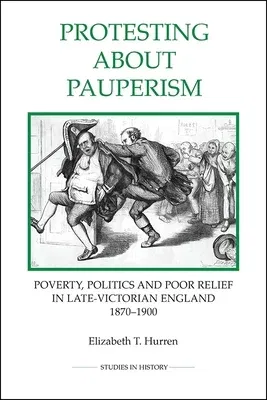Elizabeth T Hurren
(Author)Protesting about Pauperism: Poverty, Politics and Poor Relief in Late-Victorian England, 1870-1900Paperback, 18 June 2015

Qty
1
Turbo
Ships in 2 - 3 days
In Stock
Free Delivery
Cash on Delivery
15 Days
Free Returns
Secure Checkout

Part of Series
Royal Historical Society Studies in History New
Print Length
308 pages
Language
English
Publisher
Royal Historical Society
Date Published
18 Jun 2015
ISBN-10
086193329X
ISBN-13
9780861933297
Description
Product Details
Author:
Book Format:
Paperback
Country of Origin:
GB
Date Published:
18 June 2015
Dimensions:
23.39 x
15.6 x
1.65 cm
ISBN-10:
086193329X
ISBN-13:
9780861933297
Language:
English
Location:
Woodbridge
Pages:
308
Publisher:
Weight:
435.45 gm